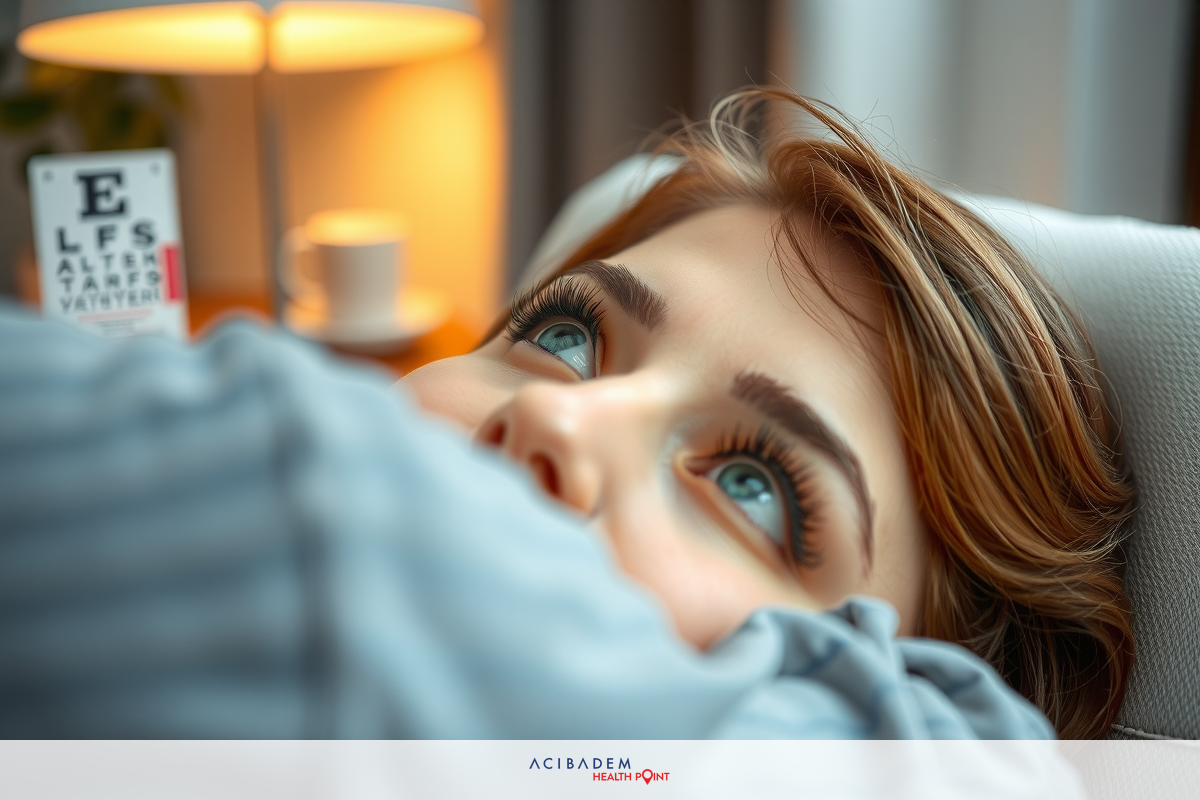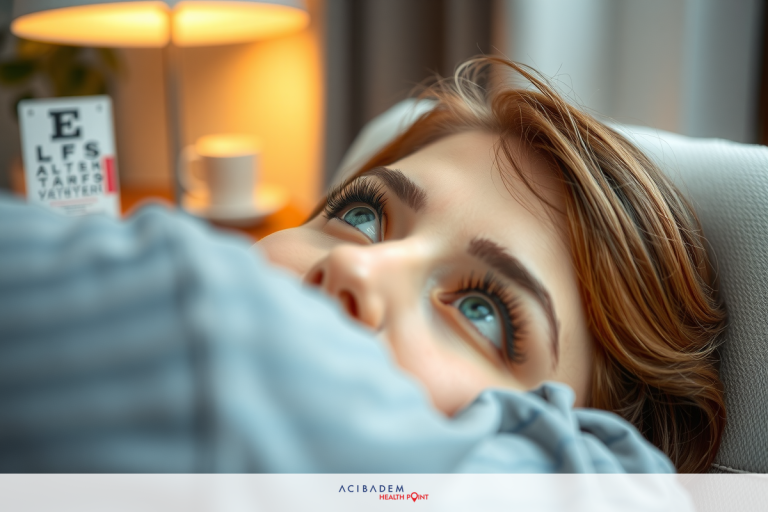How to Keep Eyes Moist After LASIK
How to Keep Eyes Moist After LASIK After undergoing LASIK, a common concern among patients revolves around eye dryness. This modern, effective vision correction technique can occasionally lead to temporary dry eyes post-operation. It’s imperative for the comfort and healing of your eyes that you take steps to ensure they stay well-moisturized.
Artificial tears play a notable role in maintaining ocular moisture after LASIK. They act as substitutes for natural tears and help lubricate the eyes effectively. On another note, your environment also influences eye health significantly; avoiding overly dry atmospheres becomes crucial following surgery. Safeguarding your eyes against irritants such as dust, wind or smoke aids in preserving moisture levels and promoting recovery.
How to Keep Eyes Moist After LASIK Using Artificial Tears
Artificial tears, often seen as an essential part of eye care, especially following LASIK surgery, provide temporary relief from dry eyes. These over-the-counter lubricant eye drops mimic the function of natural tears and provide a protective layer to your eyes. That’s not all; they also help flush out irritants that might cause discomfort or impede healing.
If you’re wondering why these artificial tears are important post-LASIK procedure, let me explain – LASIK surgery may disrupt the normal tear production for a brief period causing dryness in the eyes. This is where artificial tears step in! They compensate for this temporary shortage of natural moisture and aid in maintaining adequate hydration levels on the surface of your cornea.
How to Keep Eyes Moist After LASIKHowever, while choosing a product from an array of choices available at pharmacies can be overwhelming, it’s crucial to select those without preservatives if possible. Frequent use of preserved formulations may lead to ocular surface irritation adding to your woes instead of alleviating them! Remember that every individual’s response varies so what works best will depend largely on personal comfort after application.
In addition to providing instant relief from dryness and irritation associated with post-operative instances like LASIK treatment, regular usage has shown enhanced recovery rates too. The lubrication provided by these drops aids smooth blinking which plays a critical role in spreading moisture evenly across the eyeball surface – resulting in better visual clarity!
So whether it’s about mimicking natural tear composition or creating optimal conditions promoting smoother recovery after LASIK – artificial tears have proven their worth time and again! But remember always consult with your ophthalmologist before starting any new medication – even something as seemingly benign as over-the-counter eye drops.
Avoiding Dry Environments
The process of LASIK recovery goes beyond the realm of regular eye care and is not limited to just postsurgery medication or visits to the ophthalmologist. Your immediate environment plays a significant role in determining how well your eyes heal and maintain their moisture levels after undergoing LASIK surgery.
Dry environments can exacerbate issues related to dry eyes, making it more difficult for your body to restore its natural tear production. Therefore, creating a moisture-friendly atmosphere becomes essential during this sensitive period.
Maintain balanced indoor humidity: Ensuring that the air inside your home isn’t excessively dry is crucial. A good way to do this is by using humidifiers as they add moisture back into the environment, helping prevent

dryness.
Limit Air Conditioning usage: While ACs are great for cooling down our homes and offices, they also tend to reduce humidity levels drastically which might further cause irritation in already sensitive eyes.
Consider wearing protective glasses: If you’re stepping out on windy days or travelling in an airconditioned vehicle, consider wearing wraparound sunglasses or eyewear designed specifically for those with sensitivities since these create micro-environments around your eyes reducing exposure to drying elements.
Keep yourself hydrated: Drinking ample amounts of water helps combat dehydration which indirectly aids maintaining overall ocular health including better tear production.
By being observant about our surroundings and making minor adjustments wherever needed – we can ensure better healing while minimizing discomfort associated with drier environments post-LASIK procedure. After all, safeguarding against potential triggers forms an integral part of comprehensive eye care – especially when recuperating from procedures like LASIK!
Protecting Your Eyes from Irritants
How to Keep Eyes Moist After LASIK The journey of eye care post-LASIK surgery can sometimes be a tricky terrain to navigate. One crucial aspect that often gets overlooked is the protection of your eyes from common irritants such as dust, wind, and smoke. These elements not only cause discomfort but can also disrupt the natural moisture balance in your eyes, making them susceptible to dryness.
Irritants like dust and smoke are everywhere around us – at home, on the streets, and even inside our cars. They pose a constant risk to our ocular health by causing inflammation or allergic reactions which can exacerbate dry eye symptoms after LASIK. Therefore it becomes essential to restrict exposure as much as possible! Whether it means avoiding outdoor activities during peak pollution hours or keeping windows closed when air quality drops – every little effort counts!
Wind poses another significant challenge for those recovering from LASIK surgery since windy conditions tend to rapidly evaporate tears leaving behind drier surface prone to irritation. Wearing protective eyewear like wraparound sunglasses while going out on particularly breezy days could help mitigate this problem and maintain comfort levels.
As we delve deeper into the topic of irritant defense mechanisms, let’s highlight another critical factor personal hygiene habits! Regular hand washing reduces chances of introducing foreign particles into your eyes inadvertently while touching or rubbing them unknowingly.
Being mindful about makeup products you use post-surgery plays an important role too; opt for hypoallergenic ones whenever possible and avoid any product application close to tear ducts lest they block these vital moisture channels!
Protecting your eyes from everyday irritants may seem daunting initially but with consistent efforts coupled with regular consultations with your ophthalmologist – you’ll soon find yourself mastering this craft! A comprehensive approach towards maintaining optimal eye health forms an integral part of successful recovery journeys following procedures like LASIK.
Frequently Asked Questions
How long does it take for dry eye symptoms to resolve after LASIK?
The duration of dry eyes post-LASIK varies between individuals and is influenced by several factors including your pre-existing ocular health. Generally, these symptoms improve significantly within a few weeks to a couple of months. However, in some cases, they may persist longer necessitating continuous management strategies.
Is there any specific diet that can help with LASIK recovery and maintaining eye moisture?
While no particular diet expedites the healing process or directly affects ocular moisture levels, staying well- hydrated and consuming foods rich in omega-3 fatty acids like fish or flaxseeds could potentially support overall eye health.
Are all artificial tears safe for use after LASIK surgery?
Mostly yes! But remember not all products are created equal – some are better suited than others depending on individual requirements. Always consult your ophthalmologist before using any new over-the-counter medication to ensure its safety and efficacy!
Can I wear contact lenses immediately after undergoing LASIK if my eyes feel too dry?
No, wearing contact lenses immediately following the procedure is strongly discouraged since it can interfere with the healing process! If you're struggling with persistent dryness despite following recommended eye care tips - consult with your surgeon at the earliest who might be able to suggest alternative solutions.








